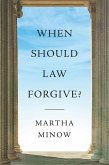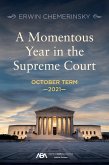The government has no power greater than to take away a person's freedom or even life. We trust our judges to balance justice and mercy to arrive at an appropriate sentence when a person has been convicted of a crime. Yet to a large extent, how a judge goes about this process is invisible to the lawyers in a case, the public, and even to the criminal defendant being sentenced. To be sure, judges often give reasons for their sentences, such as explaining when their sentence is dictated by a statute requiring a mandatory minimum sentence or how the punish-ment fits under the sentencing guidelines. But the human dimension of this - how a judge actually balances justice and mercy, what a judge feels in putting a person in prison for a long time or condemning a person to death - is rarely publicly explored.
Judge Frederic Block, a long-time federal district court judge, has written a book which describes the experience of a human being punishing other human beings. Judge Block does this by telling the stories of some of the cases that he has handled since coming on the bench in 1994. Each of the cases is compelling and Judge Block is a great storyteller. Each evokes important issues concerning our crim-inal justice system. Judge Block is candid in sharing his thinking and his feelings as he approached imposing punishments in these instances. He is remarkably self-reflective, often describing his concerns that his religion or the unfounded accusations against him or his recent reading might be unduly influencing the sentences he is imposing. Along the way, he tells us a lot about the workings of the federal courts and also about his life.
This is a book that can be enjoyed simply for its stories and its humanity. It is about the crimes people commit and what a judge considers in punishing them. It is accessible to lawyers and non-lawyers alike.
Judge Frederic Block, a long-time federal district court judge, has written a book which describes the experience of a human being punishing other human beings. Judge Block does this by telling the stories of some of the cases that he has handled since coming on the bench in 1994. Each of the cases is compelling and Judge Block is a great storyteller. Each evokes important issues concerning our crim-inal justice system. Judge Block is candid in sharing his thinking and his feelings as he approached imposing punishments in these instances. He is remarkably self-reflective, often describing his concerns that his religion or the unfounded accusations against him or his recent reading might be unduly influencing the sentences he is imposing. Along the way, he tells us a lot about the workings of the federal courts and also about his life.
This is a book that can be enjoyed simply for its stories and its humanity. It is about the crimes people commit and what a judge considers in punishing them. It is accessible to lawyers and non-lawyers alike.
Dieser Download kann aus rechtlichen Gründen nur mit Rechnungsadresse in A, D ausgeliefert werden.









